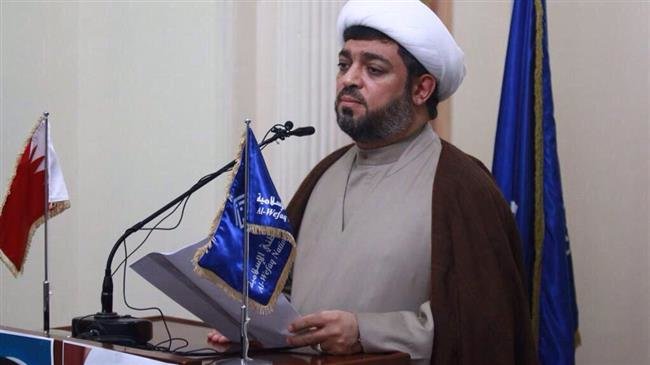
RNA - “Bahrain is now in the worst situation that it has ever faced in its history. It has turned into a desolate island, where any political activity, expression of dissenting opinions, human rights advocacy and peaceful protests are prohibited,” Deputy Secretary-General of al-Wefaq, Sheikh Hussein al-Daihi, said at a ceremony in London on Tuesday.
He added, “Nearly 200 people have either lost their lives under torture or been executed since 2011 up until now. Moreover, some 50,000 demonstrations and rallies have been staged ever since, demanding a peaceful democratic transition and real political partnership.”
The opposition figure further noted that the majority of the Bahraini society has no option but to boycott and not participate in the forthcoming parliamentary elections, which are scheduled to be held on November 24.
Thousands of anti-regime protesters have held demonstrations in Bahrain on an almost daily basis ever since a popular uprising began in the country in mid-February 2011.
They are demanding that the Al Khalifah regime relinquish power and allow a just system representing all Bahrainis to be established.
According to Press TV, Manama has gone to great lengths to clamp down on any sign of dissent. On March 14, 2011, troops from Saudi Arabia and the United Arab Emirates were deployed to assist Bahrain in its crackdown.
Scores of people have lost their lives and hundreds of others sustained injuries or got arrested as a result of the Al Khalifah regime’s crackdown.
On March 5, 2017, Bahrain’s parliament approved the trial of civilians at military tribunals in a measure blasted by human rights campaigners as being tantamount to imposition of an undeclared martial law countrywide.
Bahraini King Hamad bin Isa Al Khalifah ratified the constitutional amendment on April 3 last year.
847/940